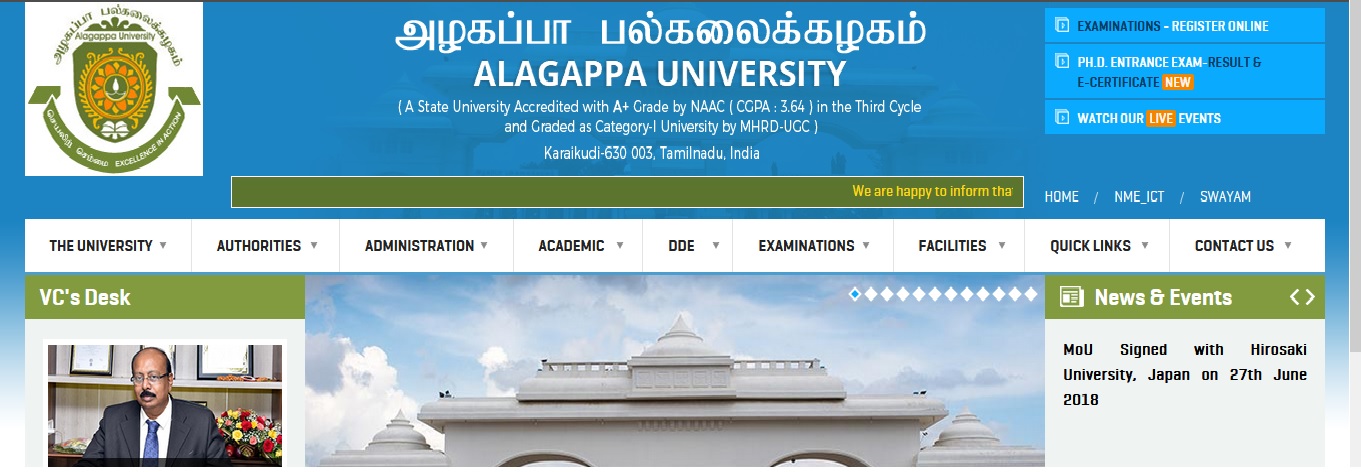Political Theory B.A Model Question Papers : alagappauniversity.ac.in
Name of the University : Alagappa University
Degree : B.A
Department : Political Science
Subject Code/Name : Political Theory
Semester : I
Document Type : Model Question Papers
Website : alagappauniversity.ac.in
Download Model/Sample Question Paper : Nov 2010 : https://www.pdfquestion.in/uploads/alagappauniversity.ac.in/3990.-BA%20POLITICAL%20SCIENCE%20CBCS.pdf
Alagappa Political Theory Question Paper
(CBCS — 2008 onwards)
Time : 3 Hours
Maximum : 75 Marks
Related : Alagappa University History Of India From PreHistory To 1206 A.D B.A Model Question Papers : www.pdfquestion.in/3993.html
Part – A :
1. Who is considered as the father of Political Science-
2. Who wrote the book Arthashastra-
3. T.Hobbes supported ……………. theory.
4. Who wrote the book ‘Social Contract’
5. Which political thinker is associated with Theory of General Will-
6. Who wrote the book ‘The Republic’ in 1576.
7. Who is real executive in India-
8. Which fundamental right was removed from the Indian Constitution-
9. Which political thinker gave more importance to
10. Administrative Laws are very popular in ……………..

11. a) Explain the nature of Political Science.
12. a) What are the functions of the state-
13. a) Discuss John Austin theory of Sovereignty.
14. a) Describe the meaning of Law.
15. a) Explain the meaning of equality.
16. Examine whether political science is Science or Art-
17. Analyse the elements of the state.
18. Write an essay on social contract theory.
19. What are the types of Equality-
20. Analyse the safeguards of Liberty.
Government And Politics Of India
1. Which Act introduced dyarchy at the provincial level-
2. The First Round Table Conference took place in …………. year-
3. Who was the chairman of Constituent Assembly-
4. In India the Sovereign power rests with …………….
5. In which year the fundamental duties were added to
6. The President nominates ………………… members to Lok
7. The tenure of Rajya Sabha is ………….. years-
8. Who introduces Money Bill in the Parliament-
9. What is the present strength of Supreme Court Judges-
10. Tamilnadu State Assembly consists of ……………..
11. a) Explain the main aspects of 1935 Act.
12. a) What are the features of India’s Constitution-
13. a) Explain the emergency provisions in Indian Constitution.
14. a) Discuss the composition and powers of Rajya Sabha.
15. a) Write a short note on Parliamentary Committees.
16. Analyse the Preamble and Philosophy of Indian Constitution.
17. Examine the powers and functions of Prime mMinister.
18. Discuss the composition and powers of Council of Ministers.
19. Explain the Legislative Procedure in India.
20. Write an essay on Governor.
Indian Political Thought
1. Dharma.
2. Elements of the State.
3. Ram Mohan Roy’s Political Freedom.
4. Gokhale’s Swadeshi Movement.
5. Karmayoga.
6. Nethaji’s concept of reality.
7. Gandhi’s Swaraj.
8. Discovery of India.
9. Self Respect Movement.
10. Rationalism.
Part – B (5 × 5 = 25)
Answer all questions.
11. a) Write a short note on Manu’s State.
(OR)
b) Write a short note on Kautilya’s views on Ministers.
12. a) Examine the Political ideas of Ram Mohan Roy.
(OR)
b) What are the Economic Ideas of Gokhale.
13. a) Analyse the Tilak’s views on Rights.
(OR)
b) Explain the Ideas of S.C.Bose’s Ideas on Communism.
14. a) Bring out Gandhiji’s views on Satyagraha.
(OR)
b) Examine the Nehru’s views on Peace.
15. a) Explain Periyar’s concept of God.
(OR)
b) Bring out Anna’s views on Social Justice.
Part – C ( 3 × 10 = 30)
Answer any three of the following.
16. Critically evaluate the Manu’s concept on Justice.
17. Explain the Social Thought of the Ram Mohan Roy.
18. Write an essay about Tilak’s Concept of Revolution.
19. Analyse Gandhiji’s views on Caste and Varna.
20. Bring out the role of Anna for the growth of Dravidian Nationalism.
Western Political Thought
(CBCS—2008 onwards)
Time : 3 Hours
Maximum : 75 Marks
Part – A (10 × 2 = 20)
Answer all questions.
1. Platonic Justice.
2. Slavery.
3. Augustine on Slavery.
4. St. Thomas Acquinas on Monarchy.
5. Machiavalli’s views on ethics and politics.
6. Bodin on Property.
7. Hobbes on state of nature.
8. Social Contract.
9. Laski on Rights.
10. Theory of Surplus Value.
Part – B (5 × 5 = 25)
Answer all questions.
11. a) Explain the system of Platonic Education.
(OR)
b) Write a short note on Aristotle’s Revolution.
12. a) Bring out Augustine’s theory of Origin of State.
(OR)
b) Describe Acquinas theory of knowledge.
13. a) Bring out Machiavalli’s advices to the Prince.
(OR)
b) Explain the Bodin’s theory of Climate.
14. a) Write a short note on Locke’s views on Individual Rights.
(OR)
b) Explain Rousseau’s views on Sovereignty.
15. a) Describe Laski’s views on Property.
(OR)
b) Write a short note on Communist Manifesto.
Part – C ( 3 × 10 = 30)
Answer any three of the following.
16. Explain Aristotle’s Classification of Governments.
17. Describe the contribution of Acquinas to Political Thought.
18. Bring out Bodin’s contributions to political thought.
19. Compare and contrast the views of Hobbes, Locke and Rousseau on social thought.
20. Examine the contributions of Karl Marx for Communism.